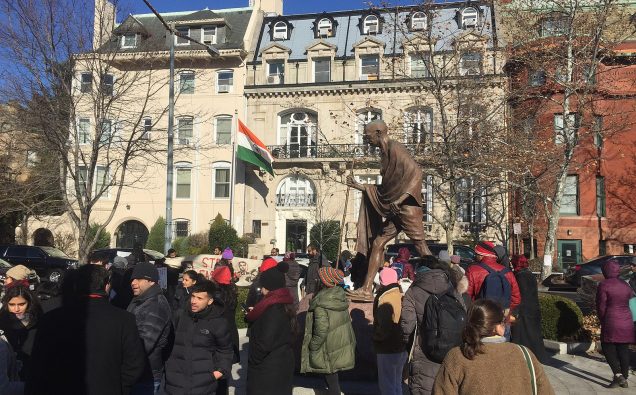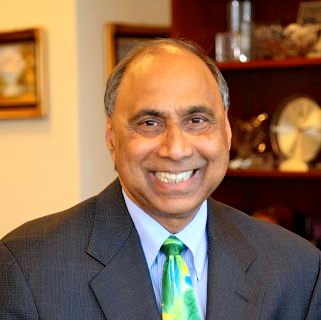
The Citizenship (Amendment) Act (CAA), passed by the Indian Parliament on December 11, has triggered widespread protests across the country. Though large-scale agitations are not new to India, not since the days of the Emergency in the mid-1970s has the country witnessed such a nationwide mobilization on the streets.
Protests have erupted in dozens of cities and on university campuses across the length and breadth of the country since the legislation was enacted. In Mumbai, India’s commercial hub, more than a hundred thousand people marched against the legislation.
Though the protests have been mostly peaceful, there has been sporadic violence. Overall, more than 20 lives have been lost, with most of them coming in Uttar Pradesh, the country’s largest state.

Entrepreneur and Thought Leader Frank Islam
In a nutshell, CAA allows the Indian government to grant expedited citizenship to minorities from Pakistan, Bangladesh and Afghanistan, who are fleeing persecution in those countries but excludes Muslims. By having religion as a criterion for citizenship of the refugees, and excluding Muslim refugees from the three nations, the new law makes a radical departure from India’s past.
Many fear that the current and future right-wing governments will use the CAA and the controversial National Register of Citizens (NRC) to reduce the country’s 200-million Muslims to second class citizen, or even non citizens. The NRC, which was first mooted in the early 1950s, requires everyone to produce documents such as birth certificates of parents to prove one’s citizenship.

New Delhi local protesters Image: Sanjeev Yadav, DiplomatTesterMan/creativecommons
The NRC has never been implemented except in the state of Assam, a border state home to nearly two million undocumented Bangladeshi immigrants. But many leaders of Prime Minister Narendra Modi’s Bharatiya Janata Party, including the powerful Home Minister Amit Shah, have indicated in the past that it would be implemented nationwide, striking fear in the hearts of many Muslims that the two three-letter initiatives are one-two punches against them.
Now I am not an expert on CAA or NRC, nor do I have the benefit of being on the ground in India to see or experience personally the impact that they are having in the country. But I firmly believe that faith should not be used as a determining criterion for citizenship. In that context, CAA is profoundly immoral and against the spirit of India’s constitution and the country’s ethos as a secular republic.
The NRC is also extremely problematic and discriminatory. If implemented nationally, it would require every Indian to submit documents such as land and tenancy records, birth certificates, government-issued certificates and electoral rolls, among others, to prove that they are citizens.
India is home to hundreds of millions of non-literate people. Many of them have never had the habit of, or the need to, keep any documents. These people will now be at the mercy of bureaucrats who will determine whether they are citizens or not, even though they have lived in the country for generations. Critics of the BJP government say that Muslims are especially vulnerable.
In Assam, where NRC has been initiated, of the nearly 33 million people applied to be included on the register, two million have been found to be illegal immigrants. Those unable to prove their citizenship may end up in mass detention centers, which are being built in the state.
Human and civil rights groups within and outside of India have asked the government to roll back CAA and not to implement NRC nationally. International groups that criticized New Delhi include the United Nations, Human Rights Watch, and the US Commission on International Religious Freedom.

An aerial view of UB City Bangalore symbolizing Indian development Image: KshitizBathwal / Skyscape Photography/ creativecommons
The media coverage of the crackdown on the CAA protesters in the past week has been unflattering to India worldwide. In the United States, the day the United States House of Representatives was scheduled to vote on the historic impeachment of President Trump, the three most influential newspapers in the country, the New York Times, the Washington Post and the Wall Street Journal had India on their front pages.
In fact, the Post’s and the Times’ coverage of what has been going on in India with regard to its Muslim population in this year has not been very favorable. They both have run several critical articles on the blackout and shutdown of Kashmir and the plans to put as many as two million people – most of them Muslims – who do not appear on the NRC in internment camps until they can be tried and deported.
The CAA and NRC initiatives, combined with the government’s actions in Kashmir, are creating perceptual problems for India here in the United States and around the globe. A country touted as a beacon of democracy for decades is now being bracketed with some of the worst violators of human rights. Mahatma Gandhi’s India doesn’t belong in that club.
India should not be seen as a place that denies equal opportunity and inclusive economic mobility to Muslims and minorities. It should be seen as an inclusive democracy that provides security and safety to all. It should be seen as a place that is governed by hope not fear and by unity not division. It should be seen as a place of the harmony and good will.
All of us will do well to remember that India cannot succeed if minorities are held back. If Muslims and minorities succeed, India will succeed. The world will succeed.
The Indian Constitution is quite clear on the country’s commitment to being a democratic republic for all. The right thing to do is to honor that commitment by ensuring Muslims and all minority groups are treated fairly and equally. This will ensure that India maintains its status as the world’s largest democracy and a leader in setting a positive example for others to follow.
The Modi administration maintains that CAA and NRC are internal matters of the country. But, in fact, they have consequences far beyond India’s borders both in terms of whether India is seen as a vital and vibrant secular democracy rather than a nationalistic or autocratic state and as a place where businesses from around the world want to come and invest.
The new narrative and the civil unrest are not going to help the Indian economy, which has already lost steam over the past year. As a businessperson, I can tell you that revival will not pick up steam if India is seen as a place that abridges human rights.
The CAA and NRC implementation will reduce foreign direct investment in India. This means India will not be able to build its economy and create jobs and build its infrastructure.
Finally, it is in Prime Minister Modi’s interest that he should pay some attention to the Indian street. In 2011, a sustained anti-corruption mass protest movement led by freedom fighter Anna Hazare had the effect of delegitimizing the previous United Progressive Alliance of Prime Minister Manmohan Singh.
Tens of thousands had come out on the street to protest against the government’s inaction on a bill that was aimed at cracking down on corruption in the country.
That was the moment the Singh’s Congress party government lost the plot and the Indian street. Singh, who is widely seen as an honest and incorruptible man, never recovered from that. It led to the rise of Modi in the next election, in less than three years.
The current agitation, even though for a different cause, could have a similar de-legitimizing effect among vast sections of the country. Modi is one of the most talented politicians India has produced since independence. He would do well not to let the current situation turn into his “Anna Hazare moment.”














